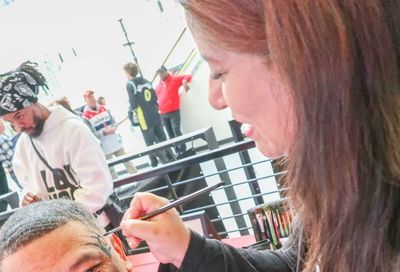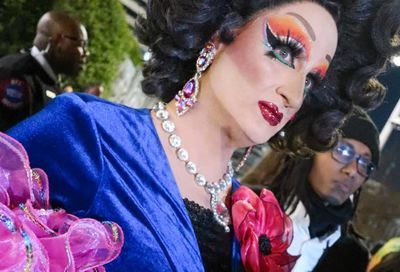‘Tis the season for hyperbole and panic.
How else to explain claims from some LGBT quarters that absolutely nothing has been done to advance LGBT equality since Barack Obama moved into the White House?
I realize that it’s easy to be labeled an apologist or worse when making this point, but to claim ”nothing” has happened under the current administration is to ignore some significant changes in federal policies, as well as some actions by Congress.
The question is not whether anything has happened; it’s whether enough has happened.
And the answer, unfortunately, is no.
The distinction here is an important one as we move into the final phase of an election cycle that has some profound implications for LGBT equality. It is beyond disappointing that Congress has found itself unwilling to advance on issues such as employment nondiscrimination and that the Senate has been unable to move forward on repealing ”Don’t Ask, Don’t Tell.”
I don’t care how often Senate Majority Leader Harry Reid sends tweets to Lady Gaga — I’ll believe in a Senate vote when it happens and not a moment before.
At the other end of Pennsylvania Avenue, despite Obama’s tinkering at the edges of the federal bureaucracy, he has yet to take an aggressive stance on passing LGBT legislation. The State of the Union declaration on DADT has devolved into a passive near-farce of surveying spouses and other side-shows. And, as expected, once Obama’s first year ended the panic over mid-term elections began, leaving LGBT issues to founder.
So, despite some gains that are real and some that are tantalizingly close, it’s understandable that all of us should be frustrated with a government from which we expected more. But, come November, it’s important to realize the alternative — it’s pretty safe to say that under a Republican-led Congress, ”tantalizingly close” will become ”agonizingly distant.”
Meaning, when it comes to our disappointment with Obama and Democrats, there’s a fine line between holding someone’s feet to the fire and shooting one’s self in the foot.
I chafe at this myself, because I dislike feeling beholden to one political party that I disagree with on some significant issues but which is the only party that considers me at least a partial citizen (unless I want to get married, in which case I should settle for a civil union). But I can’t vote for a Republican, not because I believe that all Republicans are congenitally unable to support LGBT equality — easy enough to disprove — but because the GOP’s current structure, tone and leadership mean that any pro-LGBT Republican members would be irrelevant. Change may be inevitable for the Republicans, but it hasn’t happened yet.
Which means that for this election cycle we won’t be casting votes in an aura of expectation and hope. It’s not always as exciting and motivating to cast votes to protect what few gains we’ve made rather than to change the country for the better. But it’s every bit as important when it comes to finally securing our equality, even if the road is longer and harder than we anticipated.
In a democracy, this is our job.


















